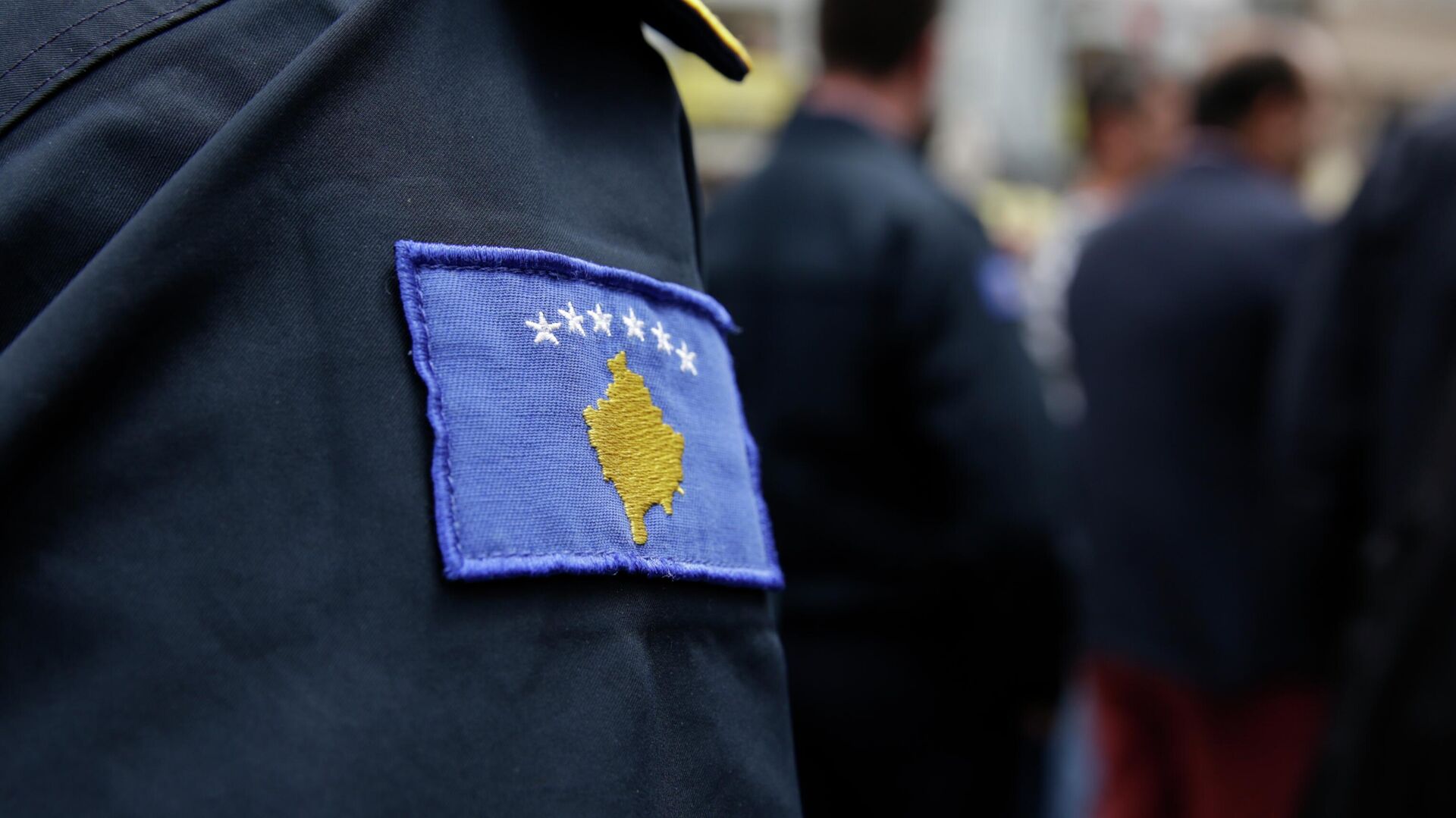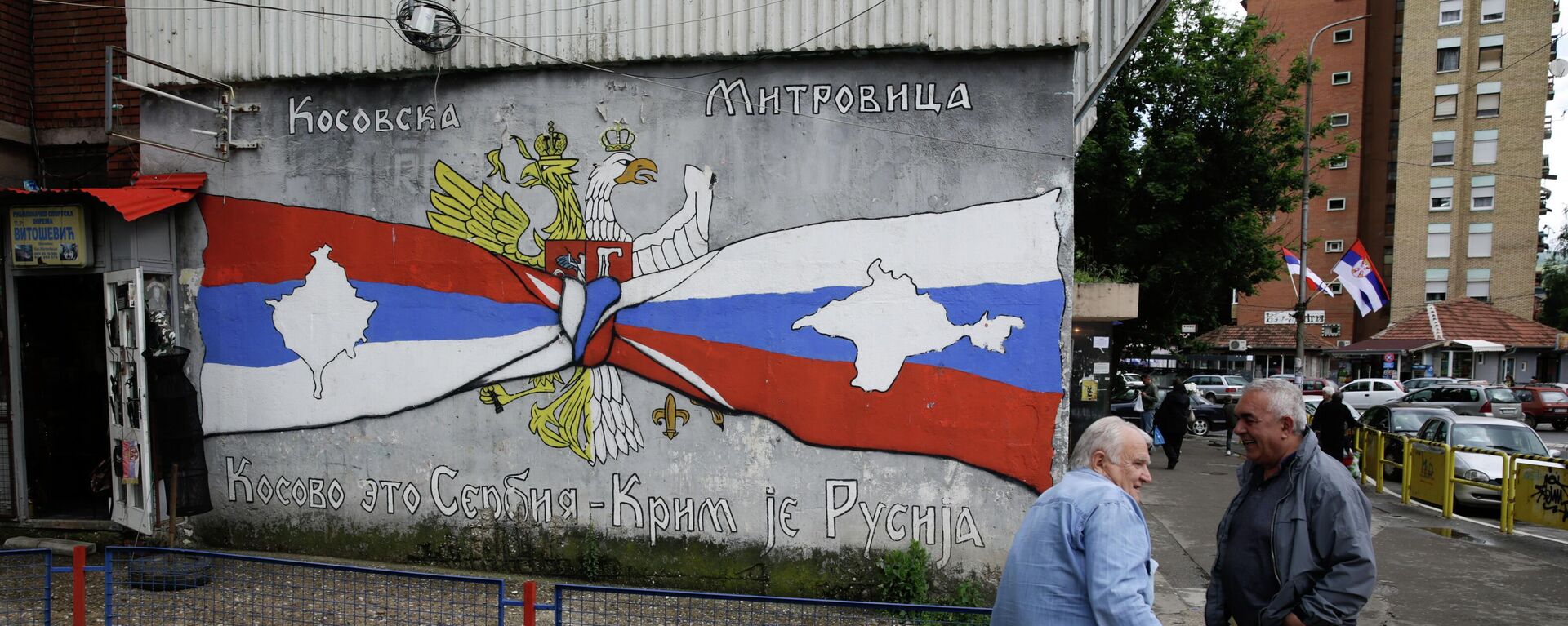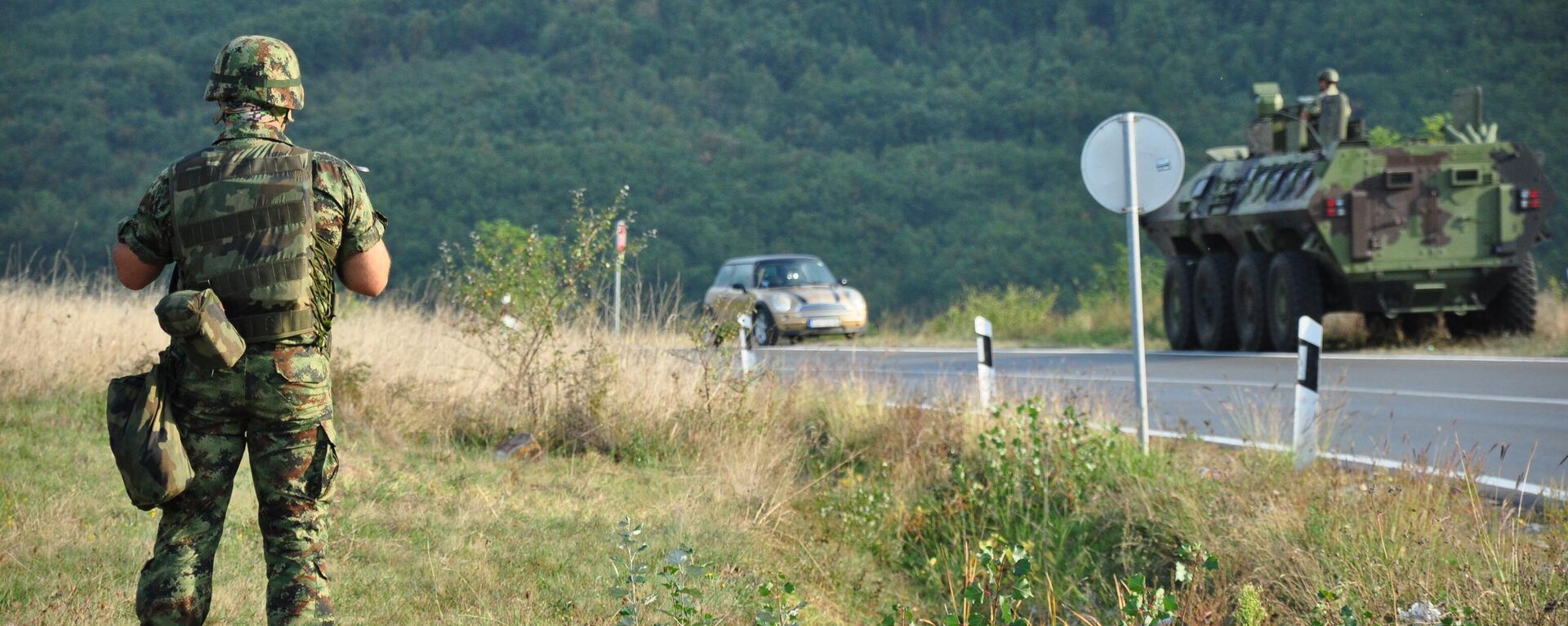Serbia Accuses Kosovo of Seeking Pretext to ‘Criminalize Serbs’ as Pristina Reports Attack on Police
18:22 GMT 06.08.2022 (Updated: 18:24 GMT 06.08.2022)

© Sputnik / Marko Kuzhavich
/ Subscribe
Tensions between Belgrade and the breakaway escalated late last month over Pristina’s plans to force ethnic Serbs living in the region to get Kosovo authority-issued license plates and exchange ID documents for new entry-exit papers distributed by the breakaway. Pristina delayed the plans’ implementation for a month after the US intervened.
Serbian Director of the Office for Kosovo and Metohija Petar Petkovic has accused Pristina of seeking to “criminalize Serbs” to justify violence against the ethnic minority following reports that shots had been fired at Kosovo police near the administrative frontier with Serbia.
“Any threat to peace and stability is unacceptable. @albinkurti wants to criminalize Serbs to justify his violent actions from Strpce to Leposavic! Serbs want to live in peace on their hearths...” Petkovic tweeted Saturday.
The tweet was a reply to Kosovo Prime Minister Albin Kurti, who wrote earlier in the day that “around 10 shots” had been fired at a Kosovo border police patrol boat on Gazivoda Lake – an artificial body of water running between Kosovo and Belgrade-administered areas of Serbia.
“This is the second time in less than a week that Kosovo police have been attacked by criminal gangs in the northern part of our territory,” Kurti wrote. “Fortunately, casualties were avoided, and a thorough investigation is now underway,” the politician added, suggesting that while “the streets are free from barricades…criminal gangs continue to barricade themselves against our law enforcement and our fight against organized crime.”
Kosovo minister of internal affairs Xhelal Svecla alleged that the shots were fired by “illegal Serbian groups who, with the support of Serbia, constantly obstruct Kosovo police,” and indicated that Saturday’s alleged incident was the second of its kind over the past few days.
Serb List, an ethnic Serb minority party in Kosovo, issued a statement Saturday condemning threats to security of any kind and by any side, and called on Serbs “not to fall for the provocations of Xhelal Svecla and the authorities in Pristina, who are trying to present our people as villains and create an alibi for violent incursions and the mistreatment of the Serbian people.”
The party emphasized that there were no tensions between Serbs and Albanians, Bosniaks, the Goranis, Roma and others living in the region, and accused Kosovar police of mistreating local residents, including civilians like Srecko Sofronijevic, an ethnic Serb who suffered severe injuries after being shot in the back during a raid by Albanian police in October 2021.
Tensions flared between Kosovo and the NATO-backed administration in Pristina last week after the breakaway announced new border crossing rules requiring ethnic Serbs traveling into and out of Kosovo to obtained Pristina-issued IDs and license plates. The decision sparked unrest in Serb-populated areas in the province’s north, with Pristina pushing the decision back to September 1 after US Ambassador to Kosovo Jeffrey Hovenier stepped in to urge Kurti to delay the law’s implementation.
The U.S. welcomes the decision by Kosovo’s leaders to suspend temporarily the implementation of reciprocity measures on license plates & entry/exit documents, both measures are fully in line with the Brussels agreements and were coordinated with the international community. 🇽🇰🇺🇸
— Ambassador Jeff Hovenier (@USAmbKosovo) August 2, 2022
The conflict in Kosovo between Albanian Kosovars and Serbs began in 1998 after Albanian militants calling themselves the ‘Kosovo Liberation Army’ began a campaign against Serbian police and military forces in the province. NATO intervened in the conflict in the spring of 1999, raining missiles, bombs and depleted uranium munitions down on the region and other areas of the rump state of Yugoslavia for 78 days. The bombings were followed up with a NATO-led ‘peacekeeping’ intervention after Serbian forces’ withdrawal, and the creation of a massive US base known as Camp Bondsteel.
In 2004, Kosovar Albanians began a campaign of ethnic cleansing against Kosovo’s Serbs, destroying historical and cultural monuments, churches and landmarks, and forcing Serbs to evacuate their homes, with many driven to the province’s northern areas. In 2008, Kosovo unilaterally declared independence from Serbia. Belgrade never recognized Pristina’s independence claims.
The breakaway province has a special importance for Serbs, with the 1389 Battle of Kosovo between Serbian Prince Lazar Hrebeljanovic and an invading Ottoman Army playing a major role in the formation of Serbia’s national identity.


